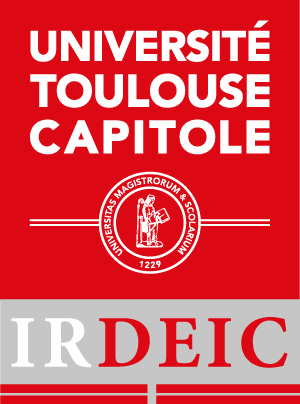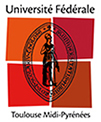SAFETY
The safety component of the programme was already developed as part of the EGERI programme but it remained part of the SESAME programme and has been extended to SESAME II.
The safety component of this new programme looks into the new issues and perspectives of food safety.
EU law in this field is at a crossroads. Although reforms are not the only issue it faces, they are still required to enable EU law to function effectively, especially in relation to GMOs, the legislation of which is currently in review (the condemnation by the Commission through a deficient recourse highlights the perverse effects of the existing legislation).
Three subjects require particular attention:
Reform of GMO legislation
New regulations for safer foodstuff (currently underway)
Changes to European food law in relation to nanotechnology
The impact of nanotechnology in the area of food should be studied given the increasing inclusion of such technology in food and ingredients. What are the safety risks for consumers regarding the ingestion of these potentially toxic nanoparticles?
What information should be provided to the consumer? What about risk assessments and the precautionary principle?
These questions and more require a general discussion on the possible need for a specific European framework for the use of nanotechnology in food, or even in relation to health in general.
A parallel can be drawn with biotechnology: how can the same problems be avoided?
What is the role of the EFSA in the assessment of risks tied to nanotechnology used in food?
These topics also encompass comparisons with Canadian law.
What is the WTO's stance?
(Negotiations in the draft transatlantic treaty, what are the safety issues for the European Union?)
To a larger extent, the issue of European norms in the area of food legislation and products in general comes to the fore.
European norms and standardisation represent key issues in the international context.
New or enhanced norms on food safety and quality, accepted at the international level, are necessary for considering the effects of globalisation on the production, trade and consumption of foodstuffs, including organic produce which represents a growing sector in world trade.
The norms are thus important not only as a source of protection of public health and consumer safety but also, in the eyes of the Commission, as a political tool for achieving the Europe 2020 strategy (development of an internal market of organic goods, reinforcement of the internal goods and services market, safety of consumed goods, quality and safety of human and animal food), and healthcare safety (section 2 of the programme).
Actions:
A symposium was organised in 2016 as part of the cooperative framework with Laval University.
Associates.
IRDEIC members:
Marc Blanquet, Olivier Blin and Baptiste Tranchant (international component)
Institut Maurice Hauriou:
Isabelle Poirot-Mazères
PUBLIC HEALTH
AREA 1.
- Patient safety
Public health is addressed in relation to the challenges to be overcome as part of the third action programme on public health (2014-2020). One of the four objectives of this programme is: EU citizen access to safer and higher-quality healthcare.
This topic is addressed through the study on implementation of Directive 2011/24/EU and the 2009 Council recommendation on the safety of patients as well as the use of ICT in the quality and safety of healthcare (provision and operation of online healthcare networks, computerised medical files, problems of interoperability and data protection, innovation).
Analysis of the role of networks of leading European centres. Are they effective? What advances are there in relation to rare diseases?
What about patient safety for those undergoing transplants or treatments requiring innovative medicines and therapies (use of human tissues and cells, such as bone marrow, eye cornea, skin, ovum, sperm).
AREA 2 - Public health and innovation
The reliance on innovation (and ICT especially) to confront 21st-century challenges is essential for many reasons: population growth, an ageing population with an increase in chronic diseases, the shortage of healthcare professionals, increased healthcare expenditure during a crisis and the budgetary pressures within this sector.
The study will look at how innovation can contribute to:
quality healthcare access (overlap with area 1), development of remote medical services in the cross-border context and implementation problems (legal framework, accountability, etc.)
the sustainability of health systems (this implies a particular adaptability of the health systems, with states being responsible for its organisation and management).
What is the EU’s role in this context?
Reflections on systems, techniques facilitating healthcare access with respect to state competence, the importance of good practices, and soft law, etc.
A study of initiatives such as innovation partnerships for active ageing and good health
Associates:
Marc Blanquet
Céline Castets Renard (IRDEIC)
Emmanuelle Rial Sebbag, INSERM
Alexandra Mendoza (occasionally), CDA.
AREA 3 - Healthcare inequalities
This area falls within the more general issue of fighting against different forms of discrimination.
It looks at the healthcare access opportunities for the most vulnerable groups of the population: marginalised groups, drug users, migrants, those with HIV/AIDS. The different forms of discrimination in the area of healthcare which they may encounter are delays in extensive treatments, refusal of treatment, attacks on their dignity and behaviour influenced by stereotypes, low-quality care, and lack of informed consent, etc.
What measures has the European Union implemented to confront such inequalities?
(in general and as part of public health programmes)
Associates:
Marc Blanquet
Joël. Andriantzimbazovina,
Hélène Gaudin
MEDICINAL AND HEALTH PRODUCTS
How much progress has been made in developing a policy for innovative and sustainable medication?
Study of issues relating to the development of new therapies including stem cells, from a patient-safety perspective.
Cell quality? Safety? Clinical trial values?
(Does the future new rule on technical tests (sufficiently) take into account these particular aspects?)
Study of the new framework for innovative medical devices, in relation to consumer protection.
Quality of medication and the prevention against falsified medicinal products in the EU following Directive 2011/62/EU. Overview
Associates:
- M. Marc Blanquet
- Florence Taboulet , INSERM
- Emmanuelle Rial Sebbag, INSERM
- C Grynfogel
- Sarah Bister et C. Fabre (Doctor and PHD Student)




 Print
Print



